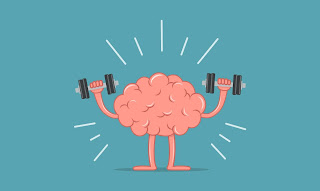The Relationship Between Exercise and Mental Health
Exercise has numerous physical health benefits, but it also has a powerful impact on mental health. Regular exercise can help reduce the risk of depression and anxiety, improve mood, and promote overall mental well-being. Here are some of the ways that exercise is linked to mental health:
- Reduces Stress: Exercise can help reduce stress levels by releasing endorphins and other mood-boosting chemicals in the brain. It can also help promote relaxation and reduce muscle tension.
- Improves Mood: Exercise has been shown to improve mood and reduce symptoms of depression and anxiety. This is because it increases the production of neurotransmitters such as serotonin and dopamine, which are associated with feelings of happiness and well-being.
- Boosts Self-Esteem: Regular exercise can improve self-esteem and self-confidence by helping individuals achieve their fitness goals and feel better about their physical appearance.
- Improves Cognitive Function: Exercise has been linked to improved cognitive function and memory retention. It can also improve focus and concentration, which can be beneficial for work or academic performance.
- Promotes Healthy Sleep: Exercise can help promote healthy sleep patterns by regulating the body's internal clock and reducing anxiety and stress levels.
- Social Connection: Exercise can provide opportunities for social connection, which is important for mental well-being. Group fitness classes or team sports can provide a sense of community and belonging.
It's important to note that exercise is not a substitute for professional treatment for mental health conditions. However, it can be used as a complementary tool to improve overall mental health and well-being. Here are some tips for incorporating exercise into your routine:
- Start Small: Begin with small, achievable goals and gradually increase the duration and intensity of your workouts.
- Find Activities You Enjoy: Choose activities that you enjoy and that fit your fitness level and lifestyle. This can include anything from running, cycling, or swimming to yoga, dance, or team sports.
- Be Consistent: Regular exercise is key to reaping the mental health benefits. Aim for at least 30 minutes of moderate-intensity exercise most days of the week.
- Mix It Up: Variety is important to prevent boredom and maintain motivation. Try mixing up your workouts by trying new activities or incorporating strength training or high-intensity interval training.
In conclusion, exercise is linked to improved mental health by reducing stress, improving mood, boosting self-esteem, improving cognitive function, promoting healthy sleep, and providing social connection. Incorporating regular exercise into your routine can be a powerful tool for improving overall mental health and well-being.

.png)

.png)
Post a Comment for "The Relationship Between Exercise and Mental Health"